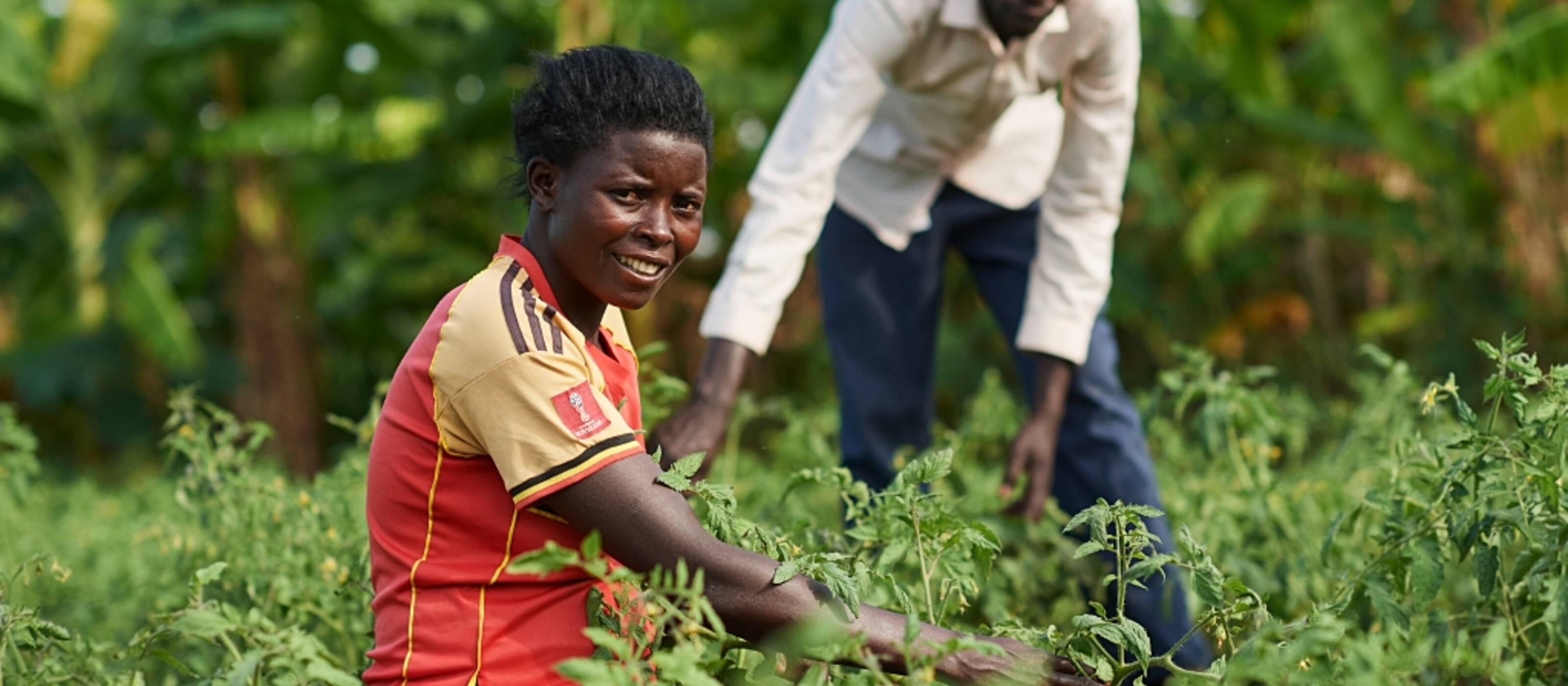

Uganda
Uganda hat sich im letzten Jahrzehnt stark verändert. Die Jahre nach der erlangten Unabhängigkeit von Grossbritannien im Jahr 1962 waren geprägt von Gewalt und Krieg. 2008, nach dem Ende jahrzehntelanger Bürgerkriege, konnten viele Vertriebene wieder in ihre Heimat zurückkehren. Die Bevölkerung Ugandas wächst stetig und ist sehr jung. Über die Hälfte der Einwohnerinnen und Einwohnern sind jünger als 15 Jahre.
Die Folgen des Bürgerkriegs sind insbesondere im Norden Ugandas noch stark spür- und sichtbar. Neben der Gewalt und grossen Entbehrungen hinterliess der Krieg auch zerrüttete Familienstrukturen und verlorenes kulturelles Wissen. Seit 1994 engagiert sich Caritas Schweiz in Uganda mit dem Ziel, die Grundbedürfnisse der Bevölkerung zu decken und ihre Resilienz zu stärken.
Überblick in Zahlen
Quellen: Human Development Report, UNESCO, UNFPA (Stand 2023)
- Gesamtbevölkerung: 48.6 Millionen
- Armutsindex (Anteil der Armutsbetroffenen): 57.2%
- Wohlstandsindikator (total 193 Staaten): Rang 159
- Bruttonationaleinkommen pro Kopf: USD 2'241
- Lebenserwartung bei der Geburt: 63.6 Jahre
- Kindersterblichkeit: 4.1%
- Alphabetisierungsrate (ab 15 Jahren): 80.6%
- CO2-Ausstoss pro Kopf: 0.1 Tonnen
Caritas-Projekte im Land
Caritas Schweiz vor Ort
Titelbild: Maurien Marachto auf ihrem Tomatenfeld im Nordwesten Ugandas. © Fabian Biasio